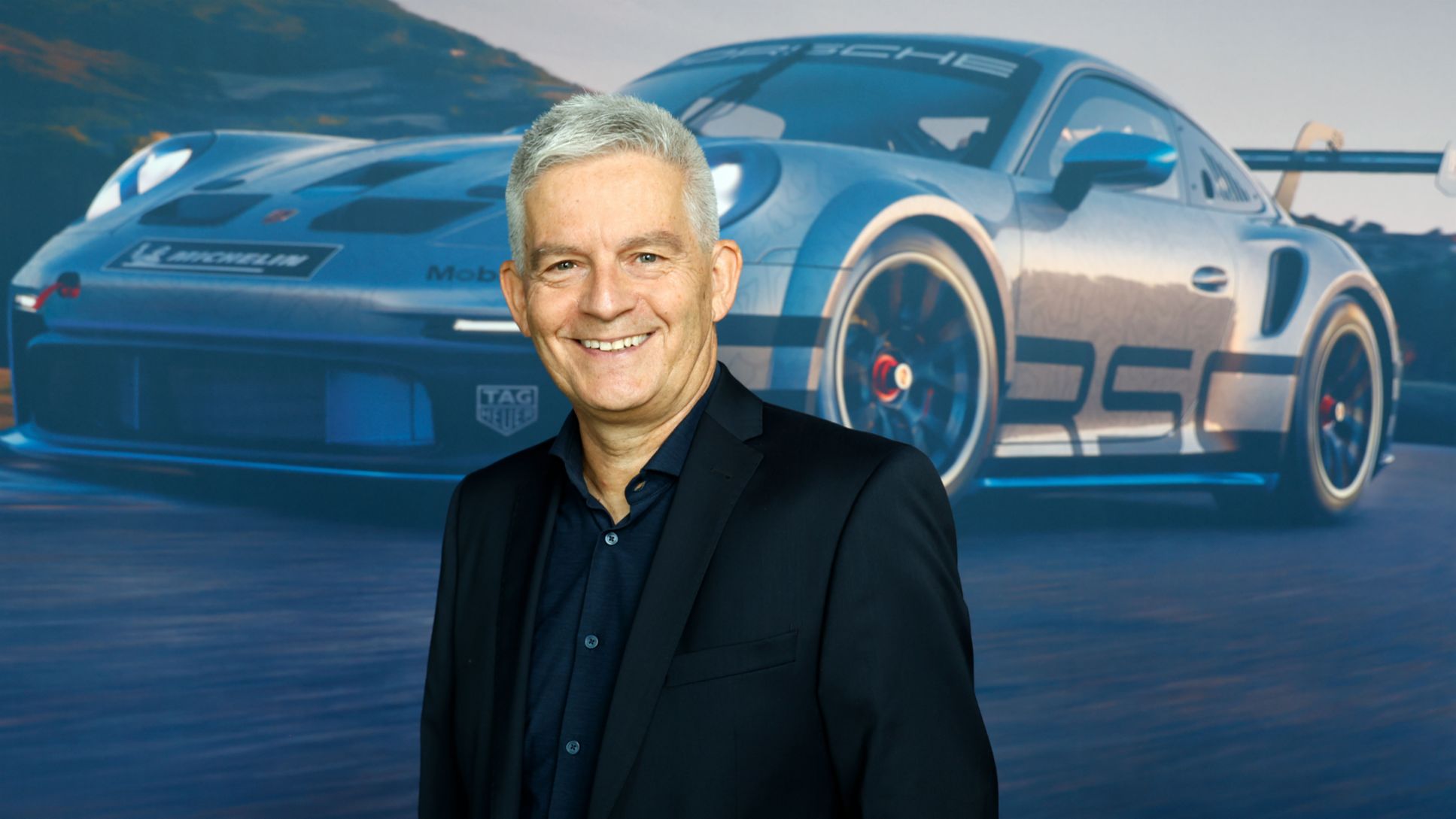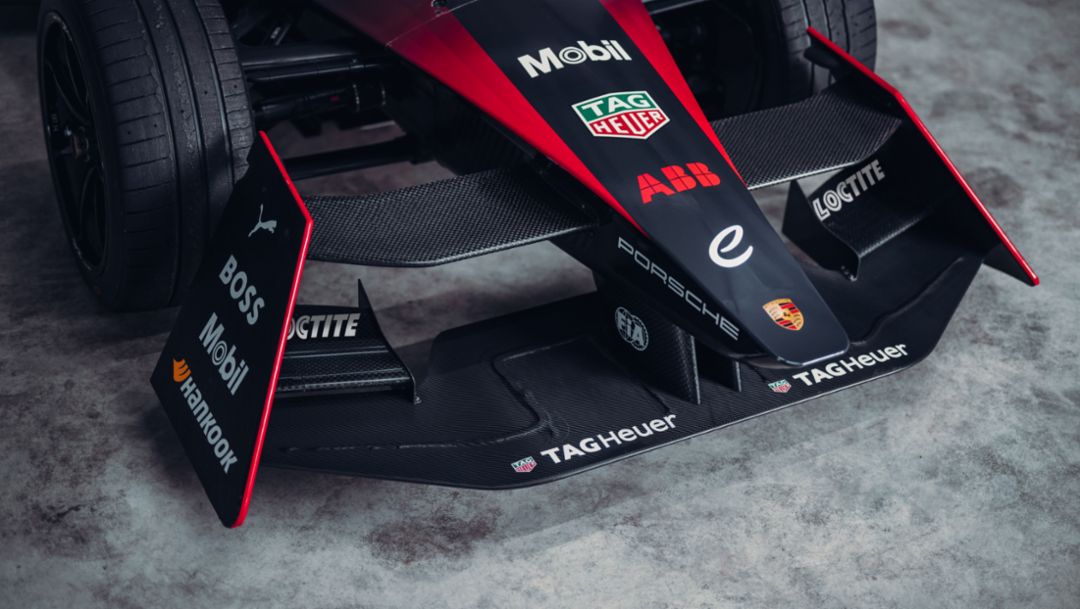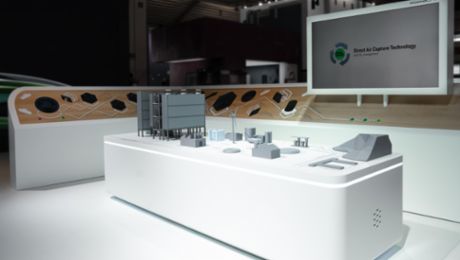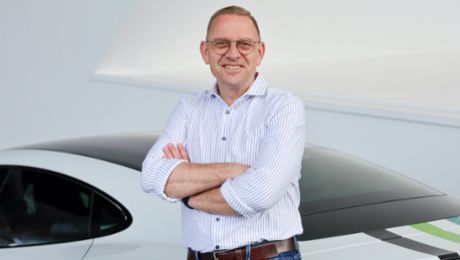Uwe, you are an institution at Porsche and an integral part of the motorsport department in the last decades. Where do you come from, what excites you about racing and why are you now concerned with the topic of sustainability?
Uwe Brettel: I've been with Porsche Motorsport since 1995 and have worked there in a wide variety of functions. A formative task for me was the management of Porsche Motorsport North America from 2003 to 2008. I was incredibly fascinated by the ever-present sportsmanship and intense competition. After another ten years as head of motorsport sales in international customer racing, I decided to take a personal break and spend it with my family and with hiking in the mountains. In the process, I experienced nature up close and became more and more involved with the topics of sustainability. In my subsequent role in the area of corporate development, I was also able to further prioritize this professionally.
You are currently working on how the impact of motorsport on our environment can be continuously reduced. At first glance, racing and sustainability seem contradictory. How can these two topics be reconciled?
Uwe Brettel: For me, it's not a contradiction. I think good sport should always be an integral part of society and not an end in itself. However, the deteriorating state of our ecosystem, already clearly visible in man-made climate change, requires a consistent rethink. The focus on greater sustainability is an opportunity for Porsche Motorsport: we can make a significant contribution by developing innovative, technical and organizational solutions.
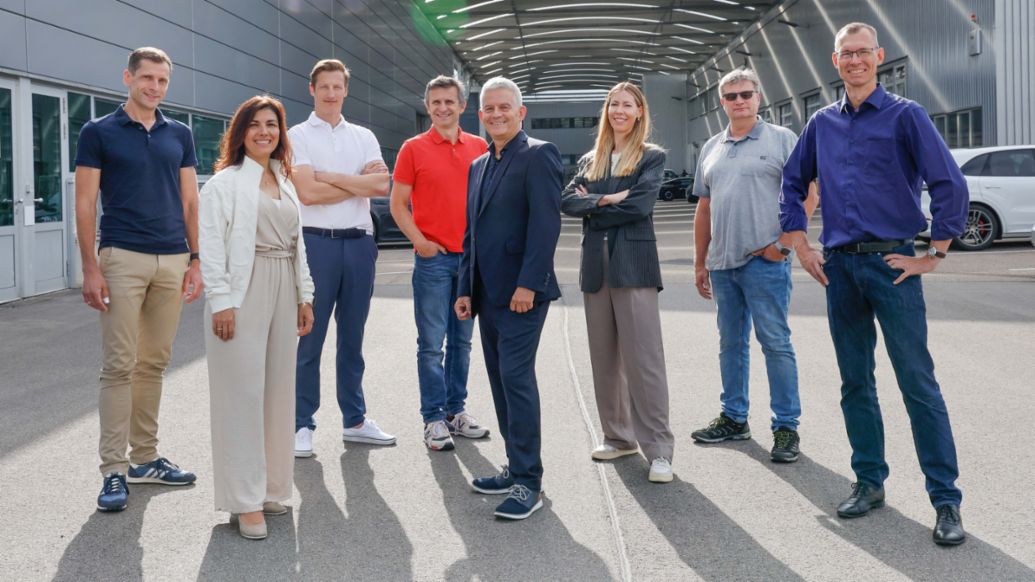
What specific approach are you taking to make Porsche Motorsport more sustainable?
Uwe Brettel: As part of our so-called strategic offensive in motorsport, we have put together a cross-departmental team. Our colleagues from the environmental and energy management system contribute their valuable expertise in the field of ecological sustainability and thus makes a significant and decisive contribution. We also work closely with strategic sustainability management, production vehicle development and a wide range of other departments to reduce the environmental impact of motorsport. This results in an effective mix of motorsport practice, strategic and operational environmental work and the pursuit of Porsche's sustainability goals. It is clear to us that we are currently only at the beginning of a transformation. The focus is on successively reducing climate-impacting emissions, energy, pollutants, waste or water consumption. We are doing pioneering work. Our team wants to focus on the entire Porsche Motorsport value chain. In doing so, we have identified three fields of action: firstly, the infrastructure of racing, secondly, the actual racing cars, and thirdly, motorsport events, such as the "Porsche Mobil 1 Supercup" or Formula E. FIA, the world motorsport association, has also published an environmental strategy that guides us. We have carried out our own stakeholder and materiality analyses. Based on this, we then drew up an initial strategic roadmap and specified the objectives within our fields of action. Subsequently, we planned the first projects and have already implemented the first measures.
What were these measures, for example?
Uwe Brettel: An exciting project was the optimization of our motorsport center at our Weissach development center. We have been able to increase energy efficiency here and will next reduce our waste streams. In the first step, we focused on measures that can be implemented quickly with regard to the energy optimization of the operation. We have already been able to achieve a lot by changing user behavior, adapting the control of technical building systems and lowering room temperatures. In the area of waste streams, for example, the aim is to introduce end-to-end waste separation in workshops and office workplaces. Our measures are already bearing fruit, as Porsche Motorsport received FIA's three-star environmental seal of approval in 2023 and is also part of Porsche's environmental and energy management system.
Energy efficiency and waste avoidance are therefore also important points outside of events. How do you deal with the topic of sustainability on site at races?
Uwe Brettel: The development of our own environmental standard for motorsport events was a milestone in our work. We implemented this event standard as part of a pilot project in the "Porsche Mobil 1 Supercup" and initially included binding and thus sanctionable environmental requirements in the rules and regulations of the event. There have been some changes in the infrastructure for teams at each race. For example, we provide drinking water fountains to avoid plastic bottles. In addition, there are special containers for potential hazardous substances so that materials such as fuels cannot harm the environment under any circumstances. In order to assess the effectiveness of our measures, we appoint a so-called Environmental Officer as a local monitoring body.
For a reduction of environmental impact in motorsport, there are also approaches directly on the vehicle. Can electrification also be implemented in racing?
Uwe Brettel: With the all-electric "GT4 e-Performance" we have developed a racing prototype – because the topic of electrification is not limited to road vehicles but can also become an even more important one in motorsport. The vehicle is currently travelling around the world on our Performance Tour and is intended to provide an impetus to think about racing in a more resource-efficient way. At the same time, we are working on many topics such as charging infrastructure or CO₂-reduced logistics. Formula E is also groundbreaking for us. There, CO₂ emissions are systematically recorded, a separate sustainability report is presented for each event and all participants have to comply with weight and volume limits when it comes to logistics.
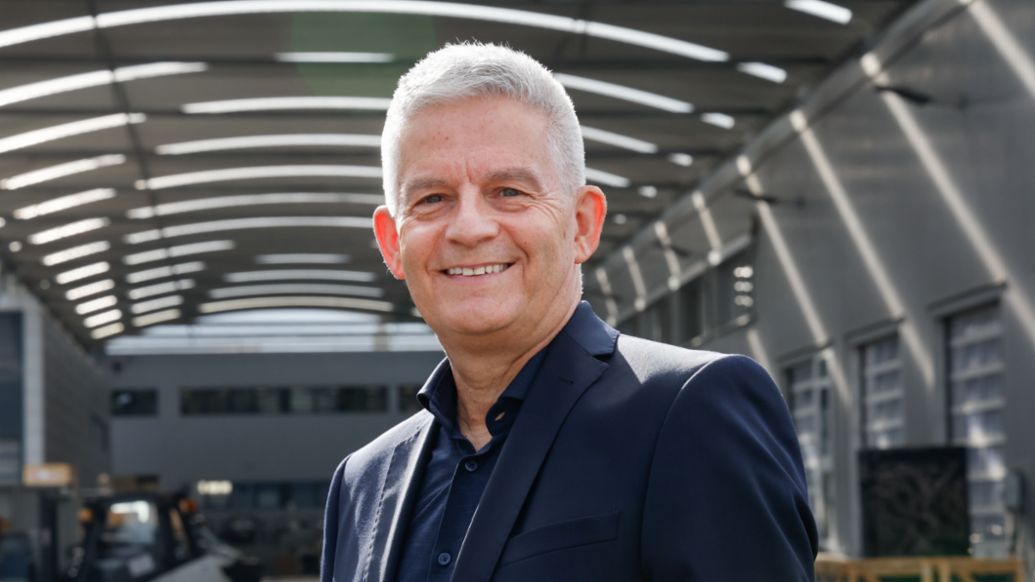
Where is the next step and what could sustainable motorsport look like at Porsche in the future?
Uwe Brettel: Porsche Motorsport could develop into a driver of innovation and a driving force for technical and sustainable solutions. True to the motto: From racing to series production. In our racing cars, for example, there is potential for savings if innovative materials are used in the body area: For example, biofiber, renewable raw materials such as flax, or recycled carbon can be used in combination with sustainable resin systems. Racing tires with a high proportion of sustainable materials are also possible. In order for this to be implemented, we have to coordinate intensively with our suppliers. That's why our motorsport purchasing department is also involved here. We also see opportunities in the use of eFuels and the electrification of parts of our racing cars and racing series. I am convinced that in the customer racing segment, especially in sprint races with a race duration of 25 to 30 minutes, exciting racing can also take place electrically and with the use of renewable energies in the future. With the "GT4 e-Performance" tour, Porsche is already showing what such a future could look like.
Info
In the interview series "Perspectives on Sustainability", Porsche employees talk about their specialist subject areas. The interview with Uwe Brettel is part 7 of the series.
